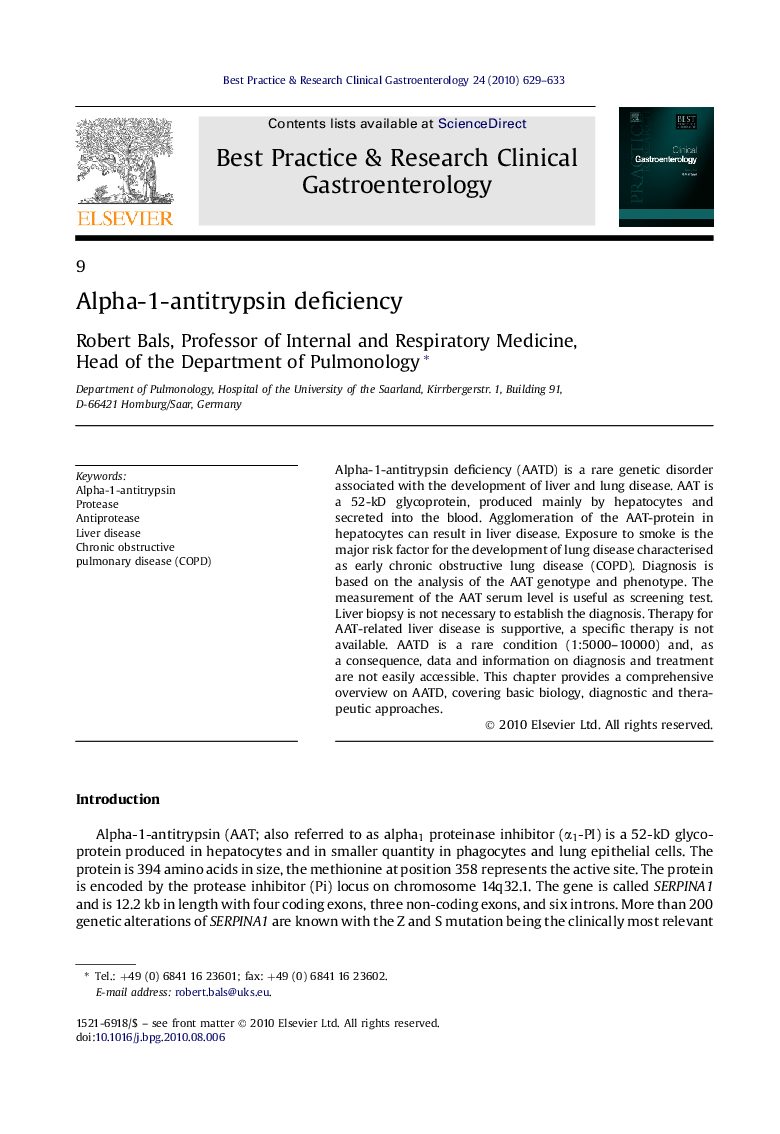| Article ID | Journal | Published Year | Pages | File Type |
|---|---|---|---|---|
| 3254290 | Best Practice & Research Clinical Gastroenterology | 2010 | 5 Pages |
Alpha-1-antitrypsin deficiency (AATD) is a rare genetic disorder associated with the development of liver and lung disease. AAT is a 52-kD glycoprotein, produced mainly by hepatocytes and secreted into the blood. Agglomeration of the AAT-protein in hepatocytes can result in liver disease. Exposure to smoke is the major risk factor for the development of lung disease characterised as early chronic obstructive lung disease (COPD). Diagnosis is based on the analysis of the AAT genotype and phenotype. The measurement of the AAT serum level is useful as screening test. Liver biopsy is not necessary to establish the diagnosis. Therapy for AAT-related liver disease is supportive, a specific therapy is not available. AATD is a rare condition (1:5000–10000) and, as a consequence, data and information on diagnosis and treatment are not easily accessible. This chapter provides a comprehensive overview on AATD, covering basic biology, diagnostic and therapeutic approaches.
